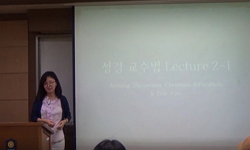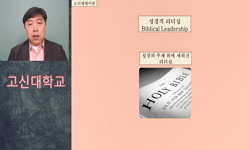‘神’, which appears in Psalm 139:7 of the Korean Bible means ‘Spirit’ and differs in the use of the term from the Chinese and Japanese Bibles. In modern Korean, ‘神’ is considered to be a unique Christian term in that it generally means ...
http://chineseinput.net/에서 pinyin(병음)방식으로 중국어를 변환할 수 있습니다.
변환된 중국어를 복사하여 사용하시면 됩니다.
- 中文 을 입력하시려면 zhongwen을 입력하시고 space를누르시면됩니다.
- 北京 을 입력하시려면 beijing을 입력하시고 space를 누르시면 됩니다.

한・일의 기독교 용어에 관한 연구 - 「God」과 「(Holy) Spirit」의 번역어 「神」 - = A Study on the Establishment of Religious Terms in Korea and Japan - Translated Words of ‘God’ and ‘Spirit’-
한글로보기https://www.riss.kr/link?id=A109407933
-
저자
이자호 (경북대학교)
- 발행기관
- 학술지명
- 권호사항
-
발행연도
2024
-
작성언어
Korean
-
주제어
종교용어 ; 신의 개념 ; 성경 ; 사전 ; 번역어 ; Religious term ; God ; Bible ; Dictionary ; Translated word
-
등재정보
KCI등재
-
자료형태
학술저널
- 발행기관 URL
-
수록면
171-191(21쪽)
- 제공처
- 소장기관
-
0
상세조회 -
0
다운로드
부가정보
다국어 초록 (Multilingual Abstract)
Focusing on this fact, this paper examines the meaning and usage of the word ‘神’ in bilingual dictionaries and Japanese dictionaries dating back to the 1800s when the Korean and Japanese Bibles were translated. I discussed the reason why ‘神’ was adopted from three viewpoints.
Research on ‘神’ has been discussed from many perspectives, such as philosophy, religious studies, anthropology, and sociology, in addition to linguistics. However, no research has been carried out that presents linguistic evidence for the unique characteristics of the Christian term which means only the ‘Holy Father’ instead of ‘God’meaning both the ‘Holy Spirit’ and the ‘Holy Father’, as claimed in the present work. This is based on a dictionary study, and it is considered impossible to clarify the meaning and usage of ‘神’ over thousands of years even if extensive research is conducted. However, it is hoped that this will be a basic study for identifying the unique character of ‘神’ used in the Bible (Psalms).
‘神’, which appears in Psalm 139:7 of the Korean Bible means ‘Spirit’ and differs in the use of the term from the Chinese and Japanese Bibles. In modern Korean, ‘神’ is considered to be a unique Christian term in that it generally means ‘God’.
Focusing on this fact, this paper examines the meaning and usage of the word ‘神’ in bilingual dictionaries and Japanese dictionaries dating back to the 1800s when the Korean and Japanese Bibles were translated. I discussed the reason why ‘神’ was adopted from three viewpoints.
Research on ‘神’ has been discussed from many perspectives, such as philosophy, religious studies, anthropology, and sociology, in addition to linguistics. However, no research has been carried out that presents linguistic evidence for the unique characteristics of the Christian term which means only the ‘Holy Father’ instead of ‘God’meaning both the ‘Holy Spirit’ and the ‘Holy Father’, as claimed in the present work. This is based on a dictionary study, and it is considered impossible to clarify the meaning and usage of ‘神’ over thousands of years even if extensive research is conducted. However, it is hoped that this will be a basic study for identifying the unique character of ‘神’ used in the Bible (Psalms).
동일학술지(권/호) 다른 논문
-
- 일본어문학회
- 안지영
- 2024
- KCI등재
-
광기의 아이들, 광기의 모성 - 후루이 요시키치 「아이들의 길」 -
- 일본어문학회
- 이승준
- 2024
- KCI등재
-
간토대지진 조선인 대학살을 묘사한 시 연구 - 「근일소감(近日所感)」 「모래 먼지(砂けぶり)」 「십오엔오십전(十五円五十銭)」을 중심으로 -
- 일본어문학회
- 채지혜
- 2024
- KCI등재
-
한국과 일본 피난행동요지원자의 피난행동지원에 관한 연구
- 일본어문학회
- 김경민
- 2024
- KCI등재




 KCI
KCI 스콜라
스콜라







